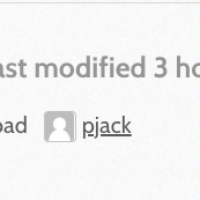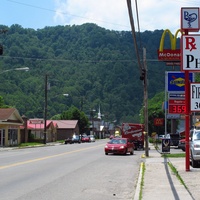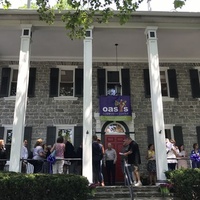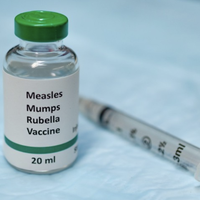Welcome to the new LocalWiki region for Mapping Pain and the Cultural Geography of Health!
This is an educational experiment in participation for this course at University of Delaware.
What to do for GEOG203 students?
1. Create an account here for LocalWiki. It's free!
2. Go to LocalWiki region for Mapping Pain and the Cultural Geography of Health found here
3. Add a new page and put it on the map. You can also map an area, or a route, or whatever. Be creative! Describe what and why you placed something as part of this course. Add to the desciption whether this location is more related to #bio, #social, or #pyscho. You can also add what level of the pain scale (1-10).
4. Tag it with GEOG203 (or include that tag in the Description).
5. Screengrab your page and upload it to the Proof assignment.
Please make sure you create your pages ONLY in the MapPain region!
The address should look like this: https://localwiki.org/mappain/... If it doesn't say "/mappain/" it is in the wrong place!
For those outside the course but interested in this project.
From the GEOG 203 syllabus: What is cultural geography?
“Cultural geography is a sub-field within human geography… No single definition of culture dominates within cultural geography…Drawing particularly [from discourse analysis] and performativity in western academia, and the more diverse influences of postcolonial theory, there has been a concerted effort to deconstruct the cultural in order to reveal that power relations are fundamental to spatial processes and sense of place. Particular areas of interest are how identity politics are organized in space and the construction of subjectivity in particular places.”
You can’t “see” culture, and that is a problem. Geographers ask “where” questions (compared to “why” or “what” questions). Where does culture live? Culture resides in the relationships between people and places. Culture must be communicated and expressed. Who speaks for culture? Who is silenced and/or marginalized? This course [and this map on LocalWiki] will help answer this question by tackling the opioid crisis to investigate and ground debates in cultural geography, anthropology, and cultural studies.
Opioids relieve pain, but pain is notoriously subjective. We will explore how many different academic disciplines try to illustrate and represent the unseen, in this case, pain. These disciplines will include everything from music to medicine. How cultures represent, document, and visualize pain will be a common theme of the course. We will map pain and explore how spatial thinking can help frame the problems and the solutions to the opioid crisis in the United States.
If you are interested in the numerous debates in cultural geography, I would recommend starting with this book:
Oakes, Timothy, and Patricia L. Price, eds. The cultural geography reader. Routledge, 2008.
If you are want to know health and medical geography, see:
Brown, Tim, Sara McLafferty, and Graham Moon, eds. A companion to health and medical geography. Chichester: Wiley-Blackwell, 2010.
If you are interested in how our notion of regions change, see:
Paasi, Anssi. "Region and place: regional identity in question." Progress in human geography 27.4 (2003): 475-485.
Paasi: "This report will review one specific part of the complicated identity discourse, the question of regional identity. Along with the tendencies depicted above, this old idea has gained new importance not only in geography but also in such fields as cultural/economic history, literature, anthropology, political science, sociology, psychology and musicology. I will first reflect the premises that geographers and others have associated with this mushrooming but rarely analytically discussed category, then map the conceptual gaps, and, finally, suggest some possible avenues for further research."
For people interested in how different forms of mapping are discussed in Geography,
There are many ways mapping practices and interpretation take form. Here are a sample.
Dodge, Martin, and Rob Kitchin. "Crowdsourced cartography: mapping experience and knowledge." Environment and Planning A 45.1 (2013): 19-36.
Gieseking, Jack Jen. "Where we go from here: The mental sketch mapping method and its analytic components." Qualitative Inquiry 19.9 (2013): 712-724.
Tuck, Eve, and Marcia McKenzie. Place in research: Theory, methodology, and methods. Routledge, 2014.
Curtis, Jacqueline W. "Transcribing from the Mind to the Map: Tracing the Evolution of a Concept." Geographical Review106.3 (2016): 338-359.
Dalton, Craig, and Liz Mason-Deese. "Counter (Mapping) Actions: Mapping as Militant Research." ACME: An International E-Journal for Critical Geographies 11.3 (2012).
Perkins, Chris. "Community mapping." The Cartographic Journal 44.2 (2007): 127-137.
(If you don't have institutional access, we can talk, so don't hesitate to reach out.)
Click on Explore at the top to see what's here now.
You can edit this and any other page by clicking the Edit button.
Need help? Please see the help page on the LocalWiki Guide!
Some interesting pages
Explore nearby regions
Or maybe you want to see all LocalWiki regions?








